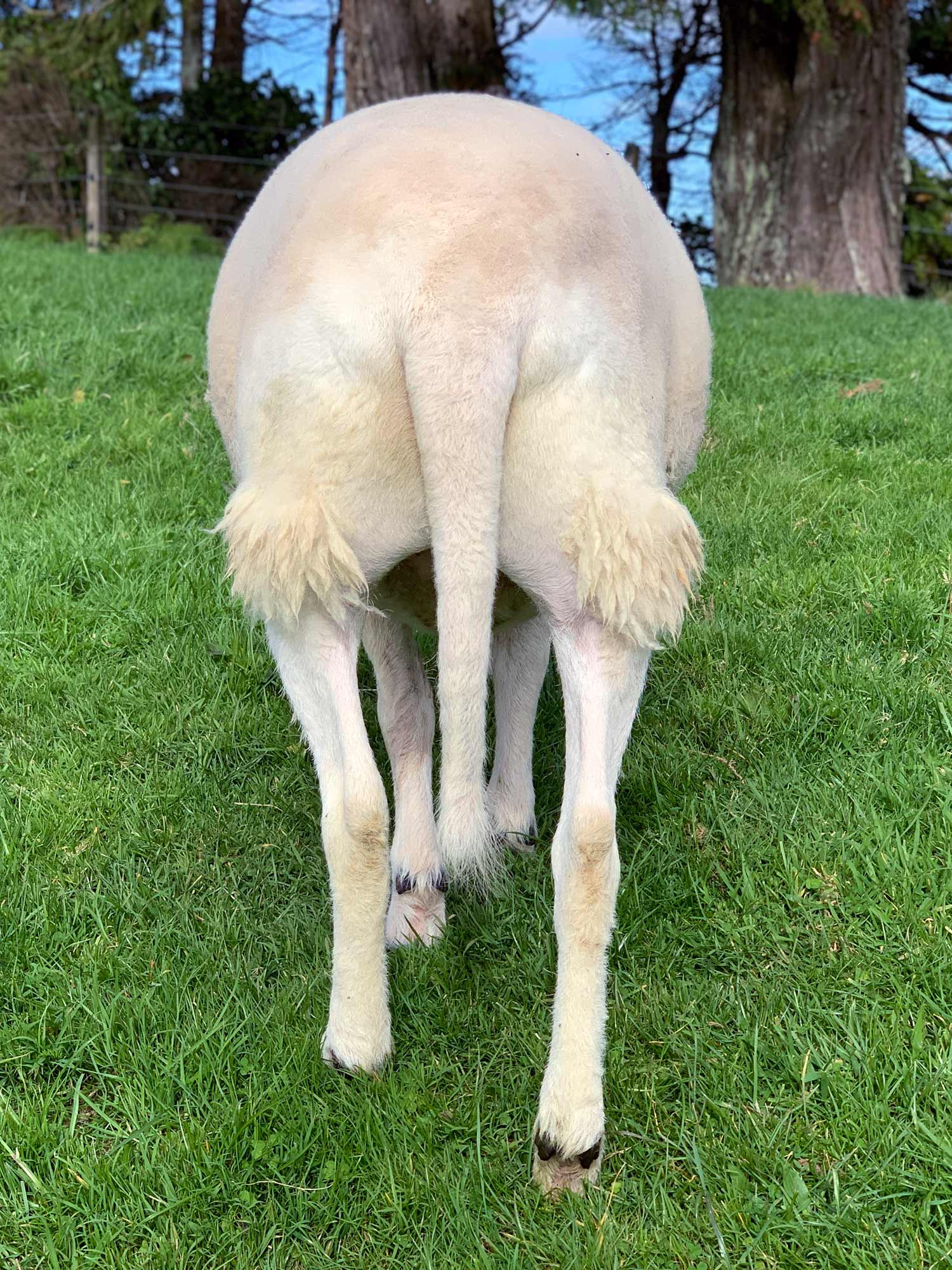No products in the cart.
Lambs are one of the cutest, happiest, and most fun loving animals on the planet. They love nothing more than to play with friends and socialise. Hand raising them is not difficult but there are a few things to know.
In one sense lambs are very easy to hand rear and look after however on the other they can be vulnerable for the first few weeks and months. If you are bottle feeding a lamb or know someone who is then here are a few important tips to keep lambs happy and healthy.
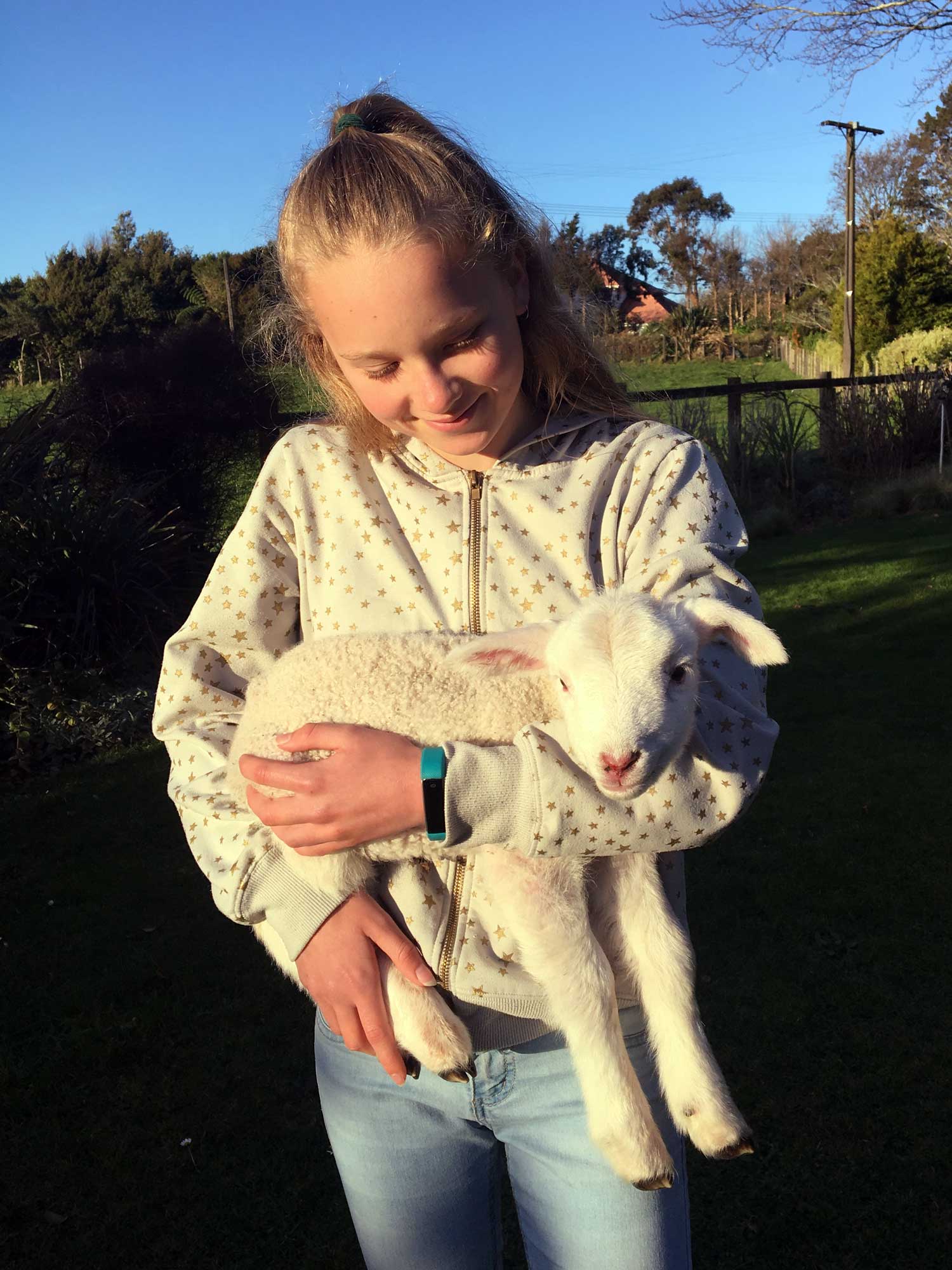
It's very important to prevent bloat when bottle feeding lambs. The only proven way to do this is by yogurtising their milk
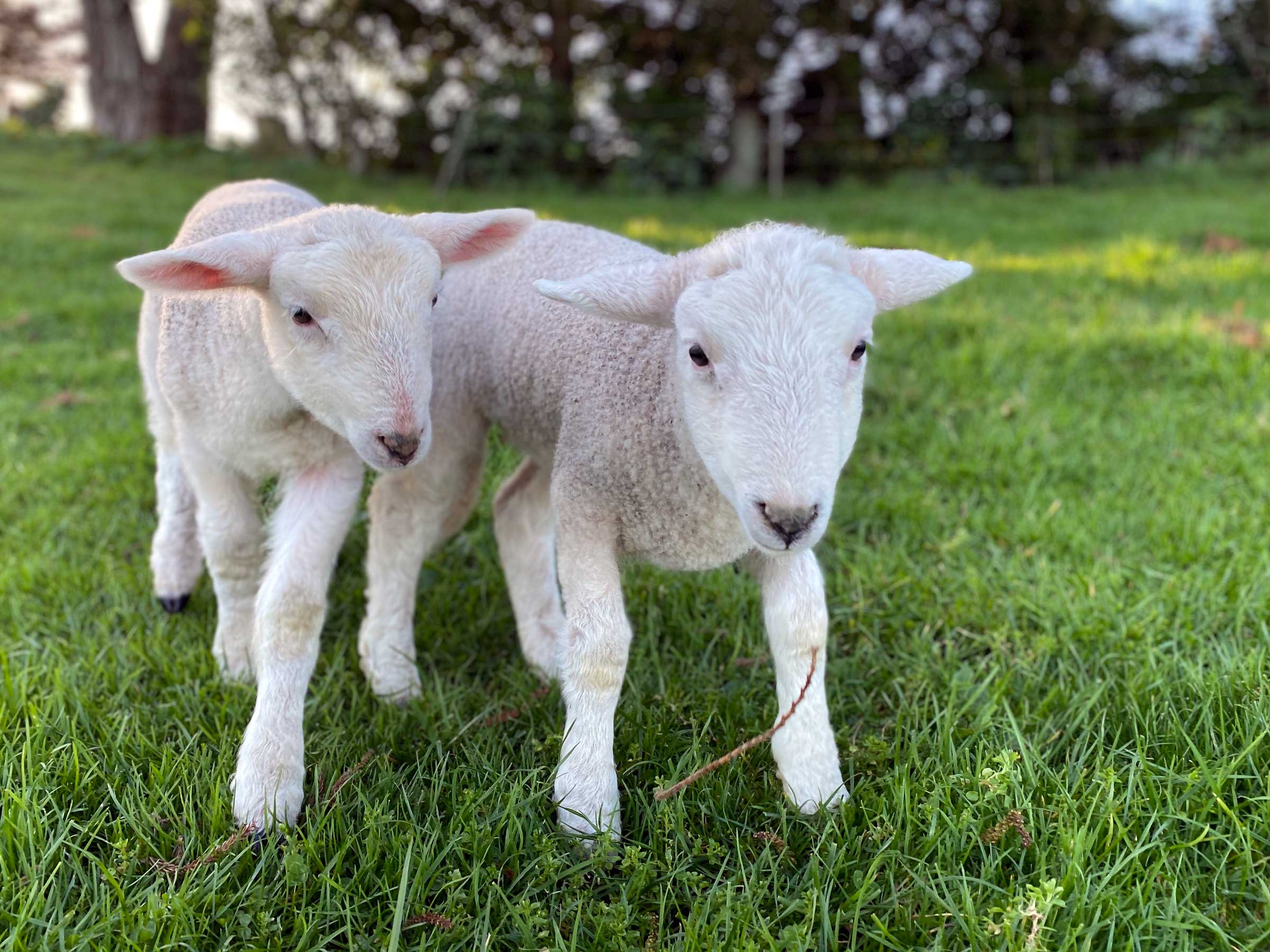
Poor baby Beans had bloat and it most likely could have been prevented by following the tips above. Luckily Beans belly didn't get any bigger than this (below) and it didn't cause him breathing problems or major discomfort. The vet thought it's best to wean him early and get him on solid food so it will come right on its own. He would have benefited from more treatment however.
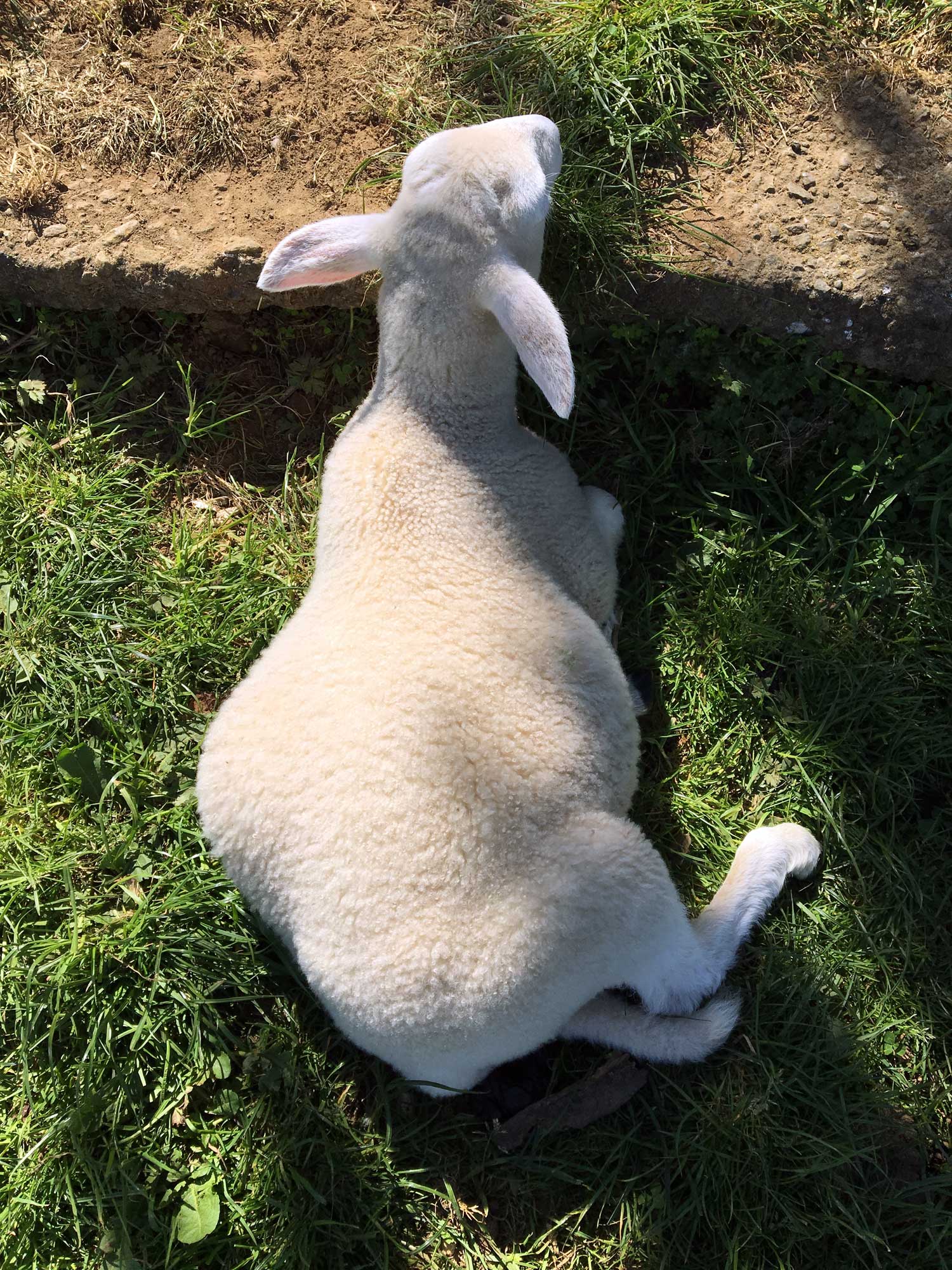
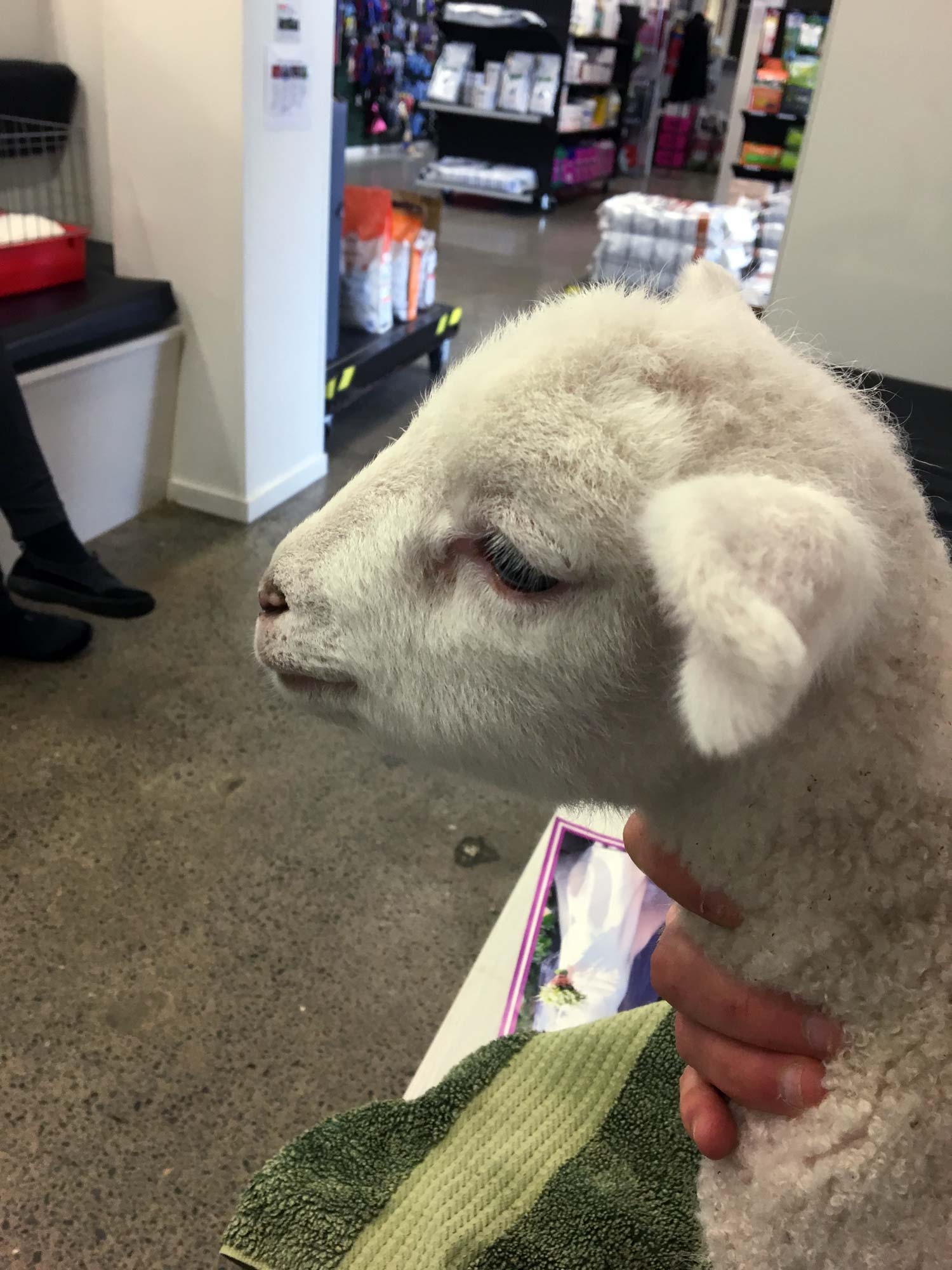
Another important point to remember is that lambs are flock animals and they need a friend. Their natural instinct is to never be alone so if are they will be anxious. It's always best to have two and it makes a huge difference because they will be much happier, more relaxed and less demanding. They are very social and learn a lot from each other and develop better if they have someone to play with. If you have one it shouldn't be hard to find another orphan.
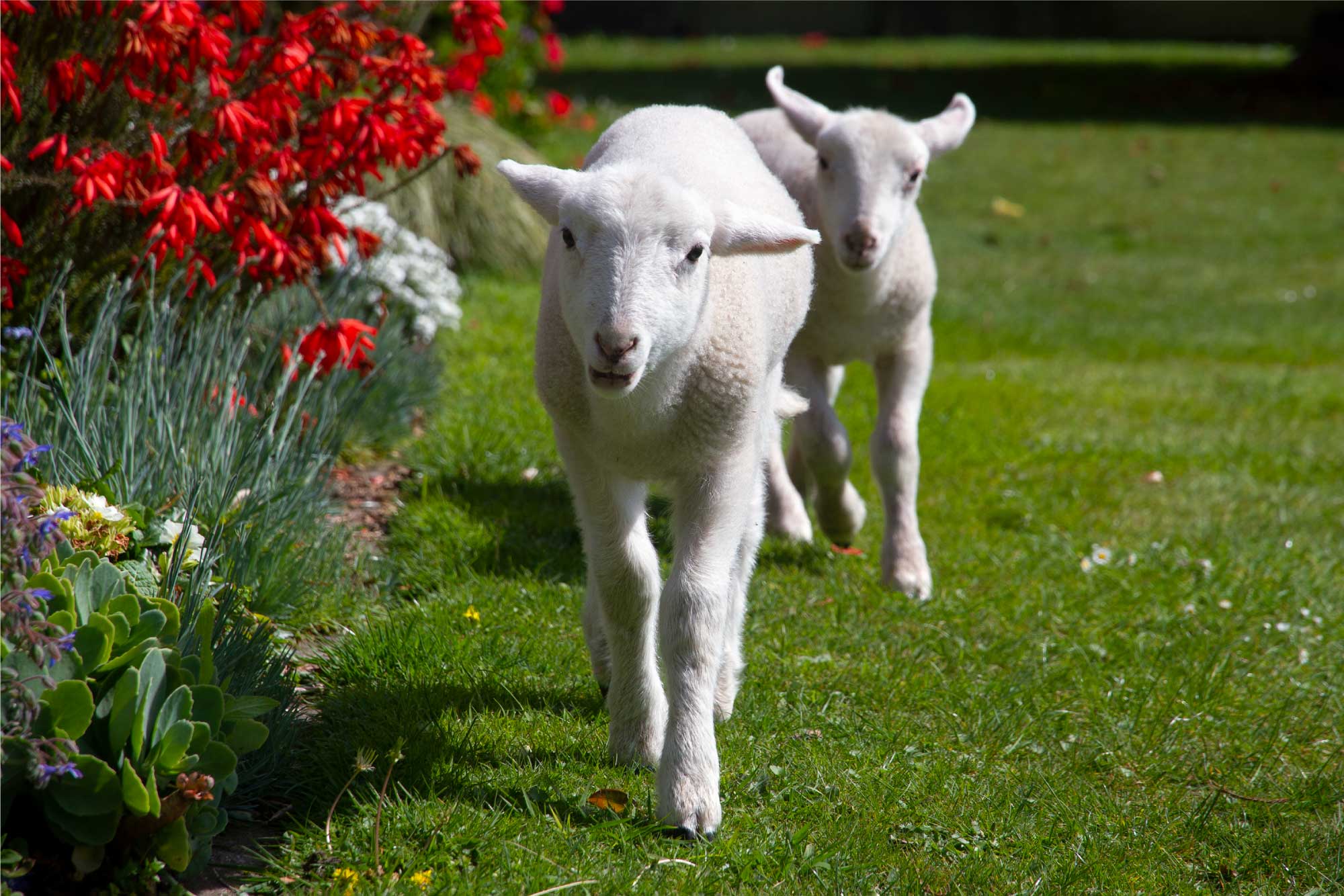
When it was just Beans he wanted to be with his human 24/7 and he didn't like being alone. Then when Frosty came along they bonded very quickly and became best friends forever. This made it much easier because they were happy to run off and spend time together and sleep in the barn rather the house.
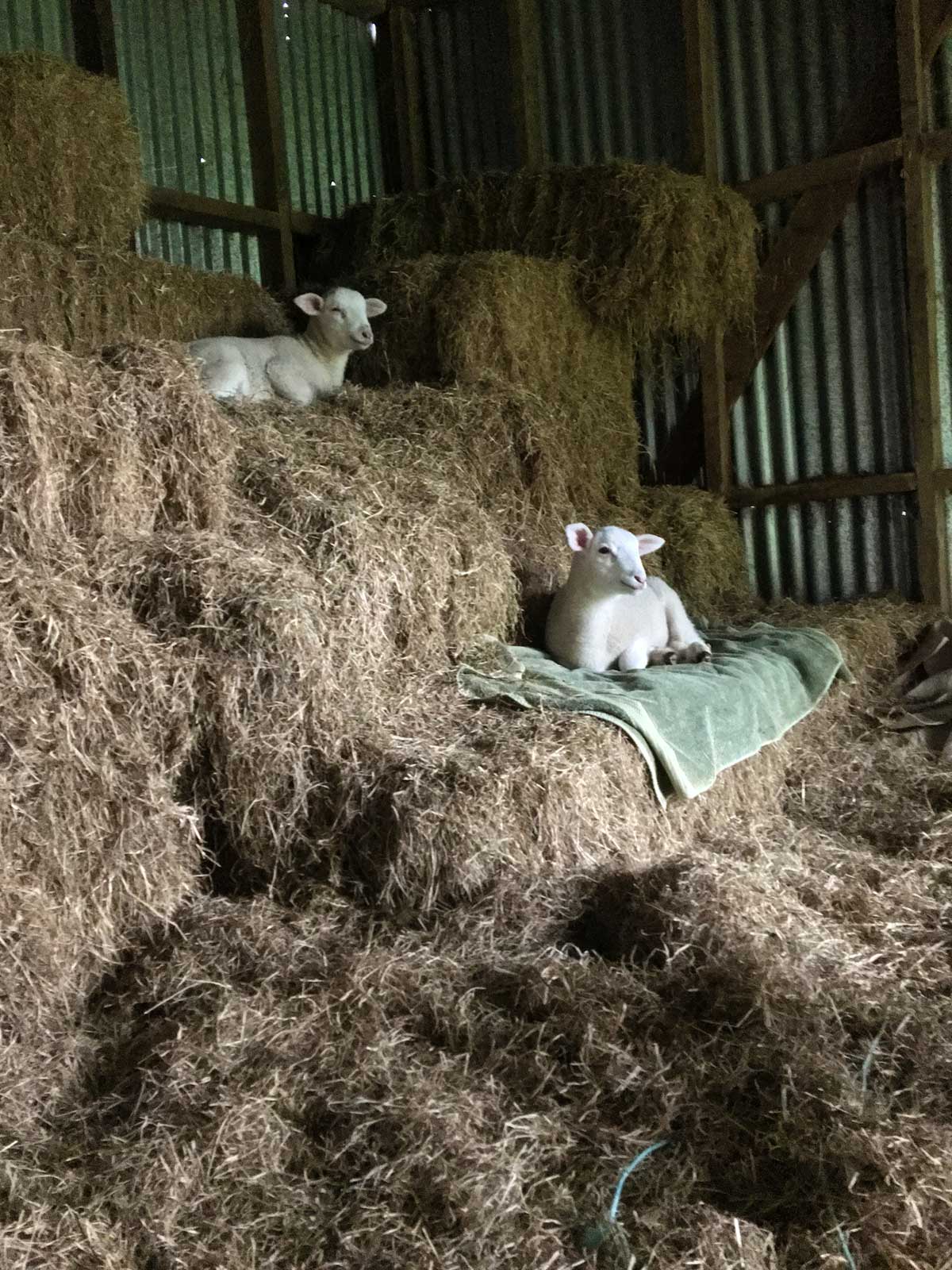
Lambs are lovely animals and giving them a good life is very rewarding. In general once they are past their vulnerable stage and are vaccinated once a year they are very hardy animals.
If you are bottle feeding lambs its best to wean them off milk as soon as it's safe to do so because of the risk of bloat. It's important to get them eating solid food from the first week by providing some lamb muesli and making sure they have access to good quality grass and hay. Before weaning its important their adult stomach, the rumen, is fully developed so make sure they are ruminating well and chewing their cud. This means they should be doing lots of chewing when they are resting after having a munch on grass.
Start by reducing the number of feeds slowly but do not dilute the milk or increase the amount per feed just remove one feed a day per week starting from about 5 weeks of age. By 10 weeks they should be down to one small bottle a day. One a day for another few weeks should be ok to keep them happy then one every two days and then one every few days or stop.
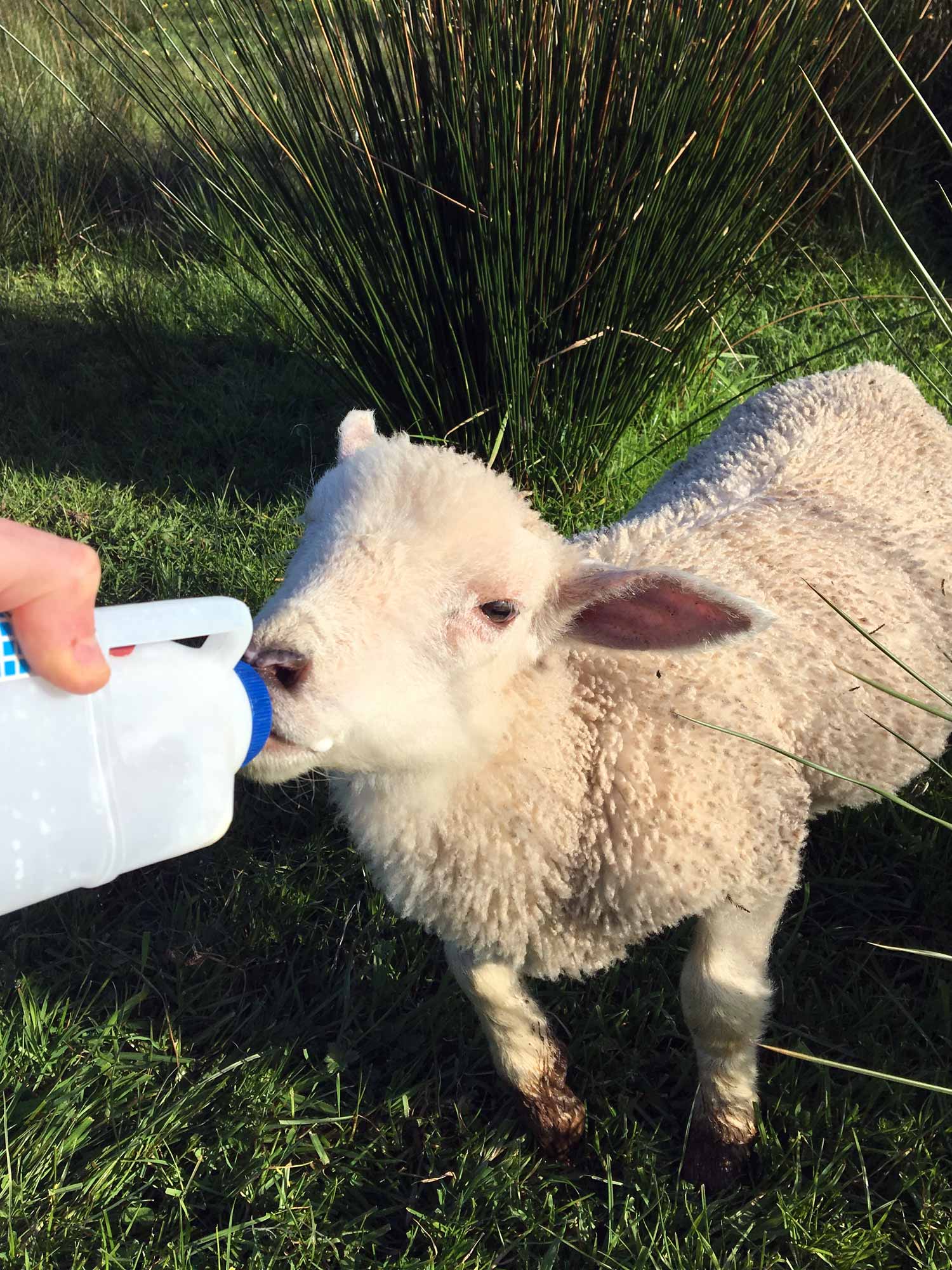
It is common for farmers to dock (remove) the tails of lambs. This is because if they are in large remote commercial flocks they can get fly strike. Fly strike is a dangerous condition where a messy behind attracts flies. The flies lay eggs that hatch into maggots which feed on their flesh, yuck! This is a nasty and serious condition that requires immediately medical attention.
However it's not necessary to dock hand raised lambs that will be kept and given a good life because you can always check them easily and trim their tail as needed. You can even spray their tail with a little fly spray if you notice any flies.
If you have a boy he will need to be castrated to prevent unwanted pregnancy and keep the testosterone in check. It's best to do this a bit later in life at about four or five months old. This gives the urethra time to fully develop which is important as they age. If a lamb is castrated earlier the urethra is thinner which can lead to dangerous blockages later in life. This must be done by a veterinarian with the appropriate pain relief.
Beans kept his tail and he loves it. It keeps the muscles in his behind working normally which is better for them. It also protects his behind much better and it's an effective fly swat that can generate a mean whack. If you are unlucky enough to be standing close when he swings at a fly it can really hurt.
Beans is a Wiltshire which is a breed who have kept their natural shedding behaviour. They grow a thick coat in winter and naturally shed it for summer. Other sheep have been bred to grow excess wool without their natural shedding behaviour so they have to be shorn. This is a completely unnatural human bred trait created so people can use the wool.
Instead of wool Wiltshire's have hair on their face, underside, and tail so it is not necessary even for farmers to dock them. The underside of the tail is bare skin as well so they do not have the same problems with flies. Sadly this is not well know and most still get docked. You can read about it from Wiltshire breeders here.
